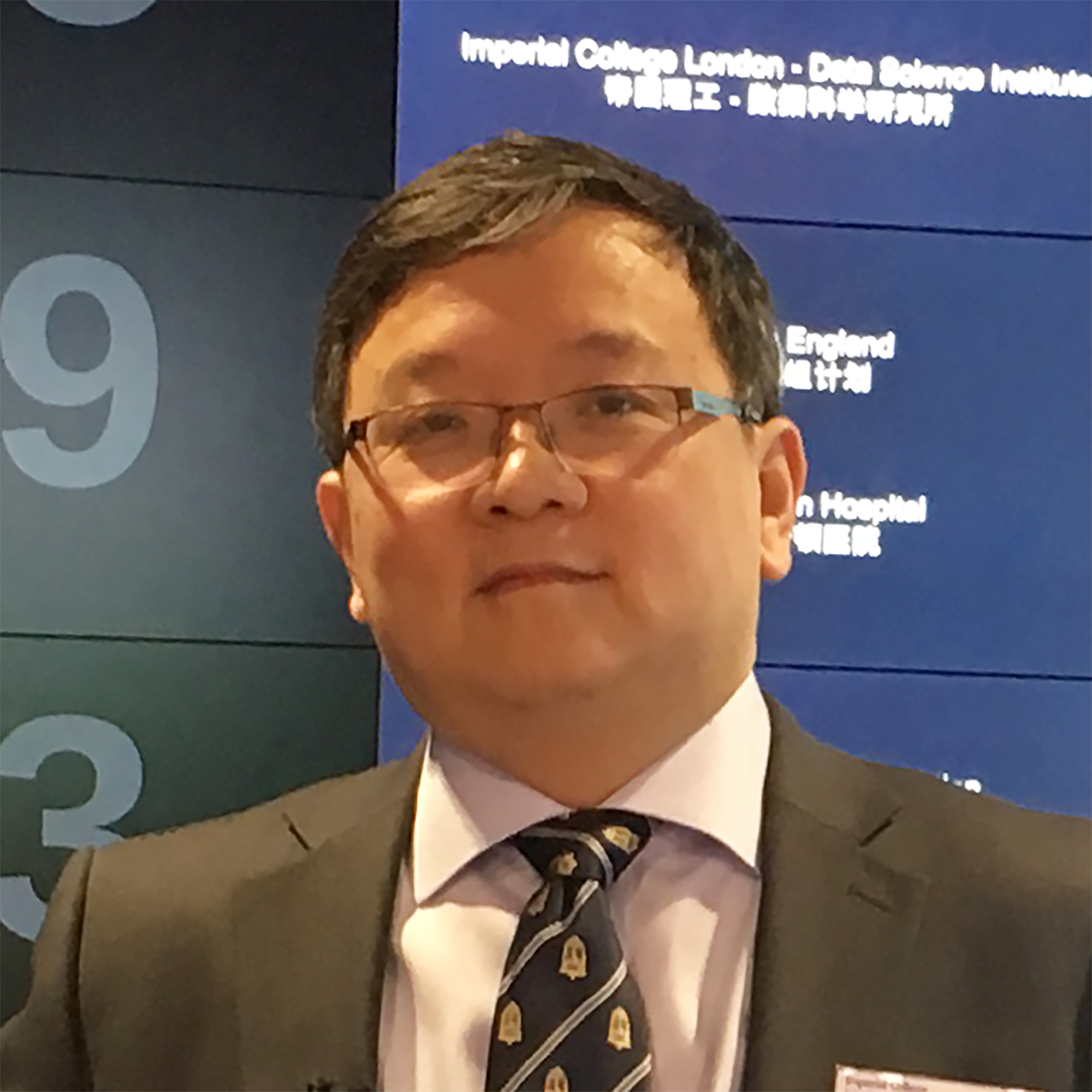Interview with Yike Guo MAE, Imperial College London#
Professor Yike Guo MAE discusses the importance of big data analysis, the impact of his international education and his continued links with China.
About Yike Guo#
Yike Guo MAE is a Professor of Computing Science and founding Director of the Data Science Institute at Imperial College London
at Imperial College London . He is a Fellow of the Royal Academy of Engineering
. He is a Fellow of the Royal Academy of Engineering (FREng), Member of Academia Europaea (MAE), Fellow of British Computer Society and a Trustee of The Royal Institution of Great Britain
(FREng), Member of Academia Europaea (MAE), Fellow of British Computer Society and a Trustee of The Royal Institution of Great Britain .
.
Professor Guo has published over 250 articles, papers and reports. He has contributed to projects which have been internationally recognised, including winning the “Most Innovative Data Intensive Application Award” at the Supercomputing 2002 conference for Discovery Net, the Bio-IT World “Best Practices Award” for U-BIOPRED in 2014 and the “Best Open Source Software Award” from ACM SIGMM in 2017.
The interview#
You are a world-renowned researcher in the area of big data analysis. Could you explain what ‘big data analysis’ means in simple terms and the importance of it in today’s world and for the future.
Access to massive amounts of information through big data nowadays is possible thanks to: 1. the massive revolution of sensor technology, which means we are now able to measure everything in the world in a very accurate and immersive way and 2. the internet, which allows us to transfer and integrate data.”
Following your undergraduate studies at Tsinghua University , China, you chose to undertake a PhD in Computational Logic at Imperial College. Why did you decide to continue your studies in the UK and what impact do you think this may have had on your career?
, China, you chose to undertake a PhD in Computational Logic at Imperial College. Why did you decide to continue your studies in the UK and what impact do you think this may have had on your career?
Coming to the UK had a huge professional impact. My career dramatically shifted from a background in hardware to becoming a theoretical computer scientist. I went on to set up the Data Science Institute at Imperial College with a mission to use big data to carry out multidisciplinary work.”
Could you tell us about how you collaborate with China in both research and commercial development? What are the benefits of international research, in your opinion?
At Imperial college we find collaboration with industry in China very beneficial for our advanced research, due to:
- The huge improvement of China’s academic standards and quality.
- The broader cultural, social and political perspective provided by such a different country. The approach to the ethical issues of AI, for example, is quite dissimilar. However, our research benefits from recognising the difference and trying to find the complementarity, regardless of which approach is considered better. We can learn a lot from both sides.
- The quite pressing and large-scale problems of Chinese industry. We may not easily foresee those problems in Europe, but we can learn a lot from them for the future. It would be the case of high-speed rail travel safety or pollution, for example. China has also a very different scale of research, which I find very interesting.”
Do you have any particular career highlights or achievements of which you are particularly proud?
- “Several. Firstly, during my earlier career at Imperial I spent quite a bit of time with Professor John Darlington
 and we worked together in the area of structural parallel programme. We introduced an important concept called MapReduce which Google implemented in their database system. We were very proud that we created this concept.
and we worked together in the area of structural parallel programme. We introduced an important concept called MapReduce which Google implemented in their database system. We were very proud that we created this concept.
Secondly I set up InforSense, an Imperial College Spin-out company. The company developed and rolled out core technology for big data processing. This is used broadly by the pharmaceutical industry. We developed this technology ahead of our time but many of the concepts were later used in the big data infrastructure.
Thirdly, I’m really proud of my PhD students and what they have gone on to accomplish. Many of them are now working as senior technical leaders in the pharmaceutical industry.
Finally, I’ve worked with colleagues to build a couple of medical informatics systems. These are now widely adopted in Europe and in the pharmaceutical industry. I have found these things very fulfilling and I’m proud of all these achievements.”:definition text
You became a member of the Academia Europaea in 2018. What did you know about AE before you were elected and what does it mean to you to be a member?
 .
.For further information please contact AECardiffHub@cardiff.ac.uk
 .
.


